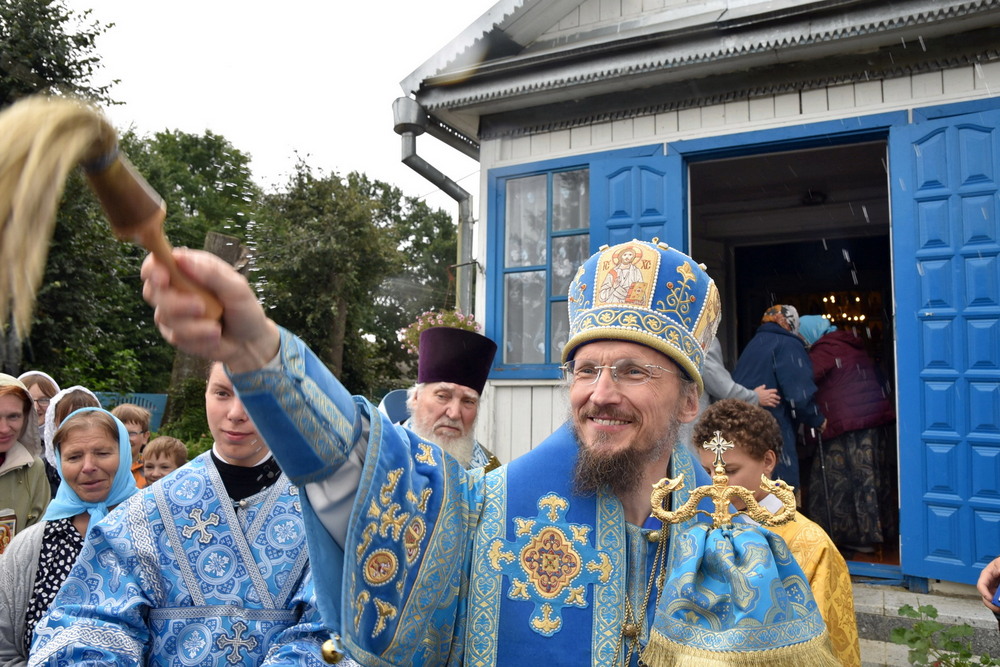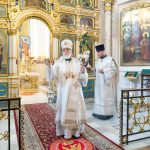
Russia Monitor is a review of the most important events related to Russian internal and external security, as well as its foreign policies.
Date: 30 August 2020
Moscow Appoints New Head of Belarusian Orthodox Church
The latest reshuffle in the Belarusian Orthodox Church is seemingly a concession that Moscow and Alexander Lukashenko both made by replacing an ethnic Russian with a Belarusian national. The new leader of the Orthodox Church is a safe bet for the country’s authorities in the whole turmoil Belarus has plunged recently.

Bishop of Borisov and Maryina Horka Veniamin has been appointed the new exarch of Belarus, and Metropolitan of Minsk and Zaslaul. At a Moscow meeting on August 25, the Holy Synod of the Patriarchate of Moscow decided to dismiss Metropolitan Pavel, the Patriarchal Exarch in Minsk, transferring him to Kuban in southern Russia. Thus the Synod accepted Pavel’s alleged request to be relieved of his post. He served as Metropolitan of Minsk and Zaslaul since December 2013. The previous metropolitan of Kuban, Isidor, died on August 8 of complications from Covid-19, the illness caused by the new coronavirus. Pavel came under fire after he had congratulated Alexander Lukashenko upon his reelection on August 9 and amid his failing to react to the mass arrests and beatings of protesters during demonstrations against the vote tally. These allegations are yet not fully justified. On August 18, Pavel visited injured protesters treated in a Minsk hospital. He reiterated that the Orthodox Church did not meddle in the country’s political life and condemned violence. He also provided the victims with humanitarian assistance. Also, Metropolitan Pavel had asked forgiveness for sending Lukashenko what he named as premature congratulations. Veniamin was born in 1968 in the Brest region as Vital Tupeka. He first graduated from the Faculty of Radiophysics at Belarusian State University, and then also from the Theological Seminary and the Theological Academy, both in Minsk. In 2010 he was ordained as Bishop of Barysau. Metropolitan Veniamin is just 51 years old. Unlike his predecessor, he is an ethnic Belarusian. Moreover, he is seen as a proponent of Yoan, or Ivan Maslov, an Orthodox monk who founded a stringent, ascetic, and somewhat mystical current in the Orthodox church. For Lukashenko, he might be somewhat comfortable –– Metropolitan Veniamin does not meddle into politics nor he publicly speaks up on anything but religious matters. His designating is good news for Russia, too. Shortly before assuming a new office, he pledged loyalty to the patriarch of Moscow in an interview. He is convinced that autocephaly is a sin, which is what Moscow started to fear. Thus it ousted the controversial bishop that came under criticism from Belarusian clergymen. Some of the faithful warmly welcomed the appointing of a native Belarusian yet this is by no means tantamount to his being independent of Moscow, but seek to pacify opposition moods throughout the Orthodox clergymen. Critical of Pavel’s feats, Archbishop Artemiy of Grodno supported anti-government rallies, and so did many younger-generation Orthodox priests. Yet within the Belarusian Orthodox Church there are also those in favor of Russia and the incumbent regime. Metropolitan Pavel was somewhat weaving between the two camps. Veniamin will be keener to follow the orders from his superiors, thus the patriarch of Moscow and the president of Belarus.
Support Us
If content prepared by Warsaw Institute team is useful for you, please support our actions. Donations from private persons are necessary for the continuation of our mission.
_________________________________
All texts published by the Warsaw Institute Foundation may be disseminated on the condition that their origin is credited. Images may not be used without permission.

















